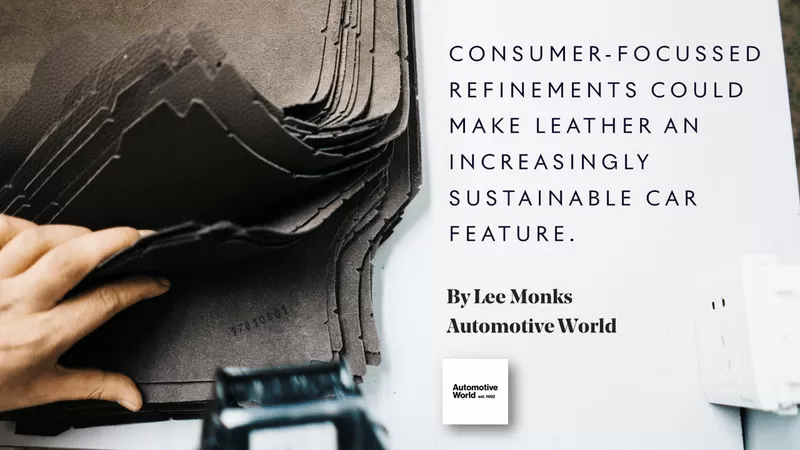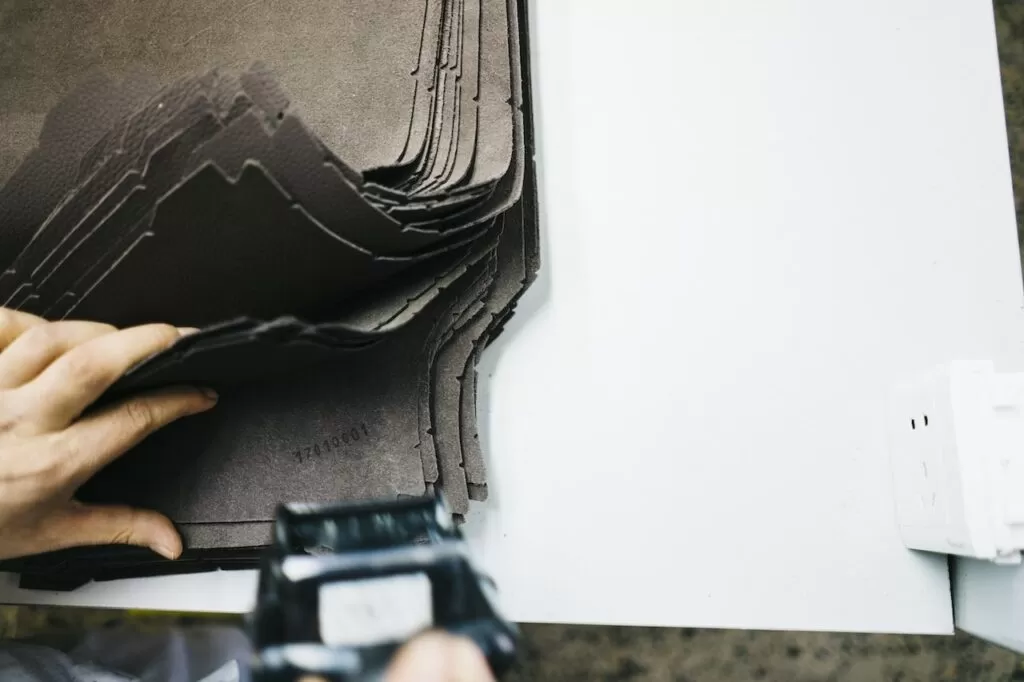In The News
Eco-Conscious Consumers Drive Demand for Sustainable Leather
August 8, 2023

By Lee Monks
Sustainability is key in the modern car industry, and so is perception. Can carmakers deliver eco-friendly and sustainable leather interiors to a growing consumer base that demands them? Pangea, a Detroit-based leather manufacturer specialising in automotive interiors, believes so.
Since a 2021 rebranding, the company has adopted more eco-conscious production techniques. Serving numerous OEMs and Tier 1s and operating myriad global processing sites, it wants to illustrate a commitment to producing sustainable leather through its revamped waste and energy management and chemical production processes.
Perception issues
Pangea has manufactured automotive leather since 1933, but its outlook is far from traditional. “The first conversations I had here when I joined in 2018 were about changing perceptions that leather is not recyclable or sustainable,” says Jacquelyn Smith, Global Marketing Manager. She adds that many people believe leather is harvested for vehicles. “The fact is that the beef industry will continue to provide a by-product that would otherwise end up as waste and go to landfill.”

Sustainable leather production options are on the rise as the material’s popularity shows no sign of decline
For many motorists, leather is synonymous with luxury or classic cars. However, carmakers such as Tesla, which stopped offering leather as an interior option from mid-2017, and BMW, which has offered entirely vegan interiors from 2023, have distanced their brands from the material. These days, when choosing a car’s interior, eco-friendly consumer options include mushroom, bamboo, cactus, and vegan silk. Yet replacing leather with bamboo for environmental reasons isn’t necessarily a clearcut move. Cattleman’s Beef Board statistics suggest 80% of cattle hides are upcycled for products like adhesives, medicines, and footballs, with the remaining 20% sent to landfill. These discarded cattle hides are highly susceptible to methanogenesis, producing methane during decomposition—80 times more atmospherically harmful than CO2.
And the beef industry isn’t slowing down. According to Statista, 2022 beef production in the US was worth US$36.28bn, an increase from US$35.65bn the previous year. Roger Pinto, Pangea’s Director of Sustainability and Innovation, argues that using hides otherwise bound for landfill makes environmental sense. “Every hide repurposed for leather reduces harmful beef industry waste. If you don’t use it, you must substitute it. For example, if you stopped making leather, you’d have to produce far more cotton.” The World Wildlife Fund describes current cotton production methods as “environmentally unsustainable” due to the use of agrochemicals, water, and the conversion of habitat to agricultural use.
Sustainable leather
“Sustainable leather is very different to traditional leather,” Pinto adds. Pangea’s sustainable leather practices rely on renewable chemistry and re-tanning processes utilising vegetable waste. He suggests Pangea will soon phase out non-renewable and non-biodegradable petroleum polyurethane, often used as lamination, and offer solely leather-based alternatives. By making such changes, Pinto argues that Pangea’s readily recyclable leather “enhances the circularity that’s possible during manufacturing. With the strength of leather, you don’t need lamination to deliver performance.”
According to market analysts Grand View Research, the global automotive interior leather market was estimated at US$31.82bn in 2021 and is expected to grow at a CAGR of 6.3% between 2022 and 2030. One major driver of growth is an increase in consumers’ ability to personalise a vehicle. Pangea states that consumers want a unique vehicle comprised of sustainable materials, and an increasing number want leather. This market demand reinforces and monetises Pangea’s commitment to better practices as carmakers deliver the interior designs consumers want.
Every hide repurposed for leather reduces harmful beef industry waste
“Our customers are increasingly focussed on sustainability. One is completely rebuilding its platforms and wanted us to help with a sustainable leather refit,” Pinto adds. Some of the vehicles featuring Pangea leather include the Lexus RX, and the Mercedes EQS. “Due to recent changes, our products are also much lighter, and we will continue to improve all our sustainable elements.” Pangea has already earned gold certification from the Leather Working Group—global auditors that measure the environmental performance of leather manufacturers—but also plans to make better use of resources.
Further sustainable measures
“Better energy management is a huge goal,” Pinto states. “We need to further reduce the amount of energy we use to create our products.” Pangea’s commitment to optimising clean energy options extends to the installation of more solar panels to power its sites (all sites already rely on some element of solar energy), a 2-3% year-on-year global energy efficiency improvement by 2025, and a 16% reduction in freshwater intake.
Pinto is confident that Pangea’s sustainable leather credentials will inspire more consumers. “We still hope people associate leather with quality and durability. Synthetic materials are not that durable. Leather is not only durable but also recyclable.” He emphasises what he sees as a compelling reality: “We manufacture everything based on what impacts global warming. If we don’t use the hide, it’s waste, and the carbon impact of the upstream processes—farming to cattle hide—doesn’t change.” With plenty of carmakers continuing to use leather, and the material itself an increasingly viable sustainable option, Pangea believes it is well placed to serve converging needs. The future fortunes of leather as a material in automotive may depend on other manufacturers similarly recognising the economic and environmental benefits of sustainable production processes.
See the original publication here: https://www.automotiveworld.com/articles/eco-conscious-consumers-drive-demand-for-sustainable-leather/